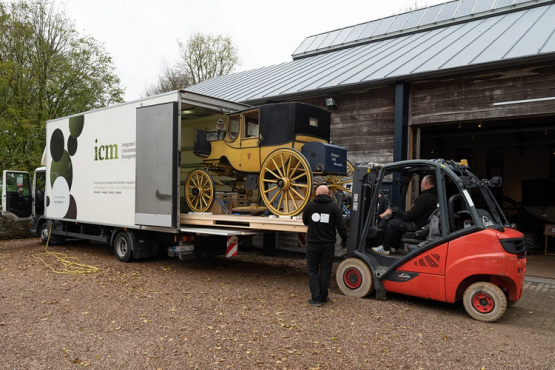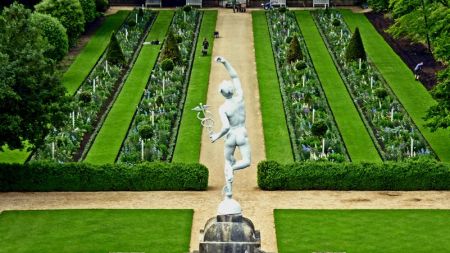An insight into the 19th Century through an exquisite Victorian carriage

When the descendent of a Victorian coachman donated us a carriage belonging to their great-grandfather, it provided us with the unique opportunity to work hands-on with a classic piece of craftsmanship from one of Britain’s most renowned historic eras, and to share its journeyed history with our visitors from all over the world.
We were first made aware of the carriage when a relative of its coachman – their great-grandfather – reached out to us. After acquiring the carriage in an auction, they were keen to donate the piece to our carriage museum at Arlington Court, in Devon, which is viewed as one of Britain’s finest collections of historic carriages.
The carriage was owned by a branch of the Chichester family – one of North Devon’s most prominent families for 500 years – who were also cousins of the family who lived at Arlington Court. As a result, it became the first carriage with a family connection to be displayed at the museum.
Kate Godden, Visitor Operations and Experience Manager for the National Trust said: 'When the National Trust first established the Carriage Museum in 1966 it decided to house it in the Chichester’s fine Victorian stable block at Arlington Court. However, no Chichester carriage remained at the Court to directly link the Museum collection and its stories to Arlington. The arrival of the Chichester carriage, an unusual vehicle with strong Devon connections, at last allows us to do that.'
The carriage has a plush interior, lined with luxurious silk, providing a comfortable journey for the original owner, Robert Chichester.
Painted a distinctive bright yellow with a black roof over the passenger compartment, the carriage still carries the crest of the Chichester family on the doors. Designed as a family travelling carriage, or ‘town chariot’, it was later converted to a slightly larger carriage for regular family use.
These modifications were made by a local business, providing us with an invaluable insight into the craftsmanship of the era – particularly surrounding carriage building.
After the coachman’s great-grandson, Garth Pedler, acquired the carriage in 1996, he set about conservating it before gifting it to the National Trust, so that we can help preserve its legacy and shares its history with our visitors for many years to come.
The carriage was treated for woodworm and other pests in a specialist lorry for a 24-hour process of warm air treatment.
'The process of moving the Victorian carriage from its current home near Totnes to Arlington has been fascinating,’ comments Joanna Cairns, a registrar at the National Trust. ‘Due to its size and age, a specialist art handling company transported the carriage to Arlington Court. Once here, it was transferred into another specialist lorry, where it went through a 24-hour process of warm air treatment to kill woodworm and any other pests. Only once it had the all-clear was it admitted into the museum to ensure no pests could affect the rest of the collection.'
'It’s wonderful to have this important and fascinating carriage at Arlington,’ says Phillippa Turner, Arlington Court’s Collections & House Manager. ‘Not only does it provide us with the first Chichester carriage at the Carriage Museum, but it was also modified by a local company, Pettle of Barnstaple, who were based within ten miles of Arlington Court. As a result, we’re able to learn more about the local craftspeople and the business of nineteenth century carriage building. We can’t wait for people to come and see it and enjoy it.'
Categories
- Apprenticeships (52)
- Building Surveying (3)
- Business Services (1)
- Catering (1)
- Communications and Marketing (3)
- Conservation (9)
- Countryside (10)
- Curatorship (3)
- Diversity (1)
- Estate Management (4)
- Finance (2)
- Food and Beverage (6)
- Fundraising (8)
- Gardening (11)
- General Management (2)
- Governance (2)
- Heritage Building Crafts (4)
- Holidays (3)
- House and Collections (4)
- IT (8)
- Membership (1)
- People and Legal (3)
- Projects and Programmes (6)
- Retail (2)
- This is us (5)
- Visitor Experience (3)
- Volunteer and Community (3)
- Volunteering (1)
- Work Experience (1)
- Young People (12)

